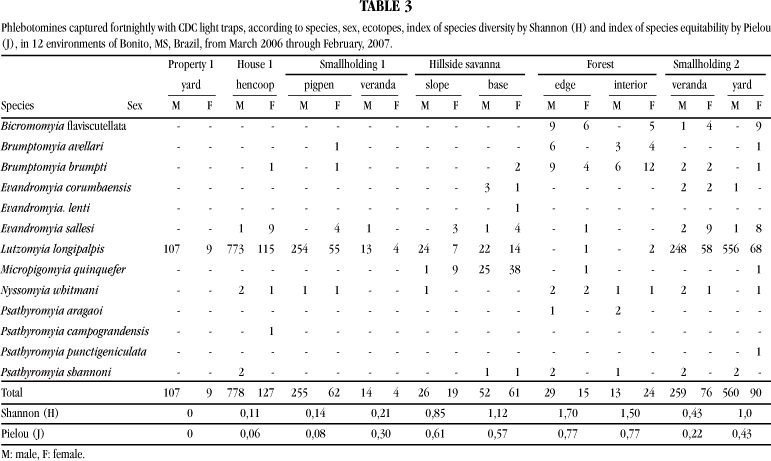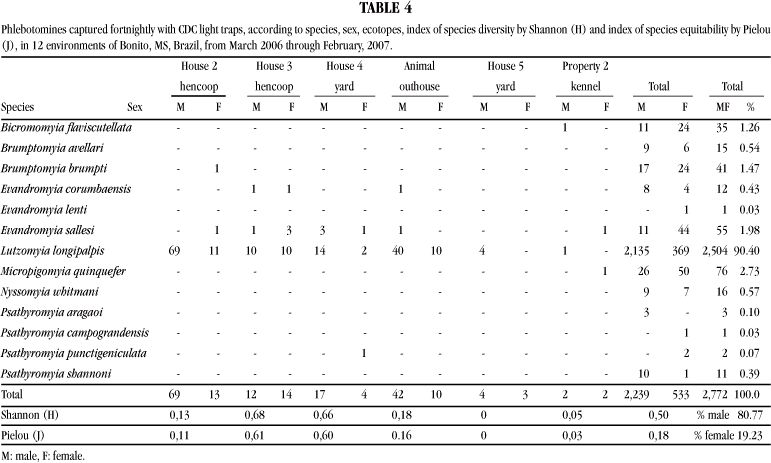The aims of this study were to carry out a serological survey of canine leishmaniasis and identify the phlebotomine fauna in the urban area of Bonito, Mato Grosso do Sul. The serological survey was conducted on a sample of 303 dogs, by means of the indirect immunofluorescence test. Phlebotomines were captured using automated light traps. The serological survey found that 30% of the dogs were seropositive, both from the center and from all districts of the town. A total of 2,772 specimens of phlebotomines were caught and the species most found was Lutzomyia longipalpis (90.4%), which corroborated its role as the vector of for canine visceral leishmaniasis in the region. Phlebotomines of the species Bichromomyia flaviscutellata (the main vector for Leishmania (Leishmania) amazonensis) and Nyssomyia whitmani (the vector for Leishmania (Viannia) brasiliensis) were also caught. The findings indicate the need for continuous epidemiological surveillance, with attention towards diminishing the vector breeding sites and the transmission of these diseases in that region.
Leishmaniasis; Canine seroepidemiological survey; Phlebotomine fauna; Bonito; Bodoquena plateau





